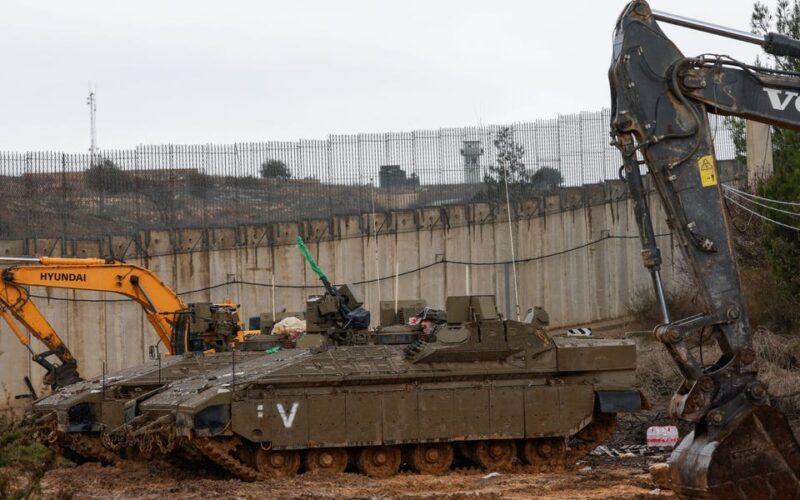- A cease-fire deal aims to end the Israel-Hezbollah conflict after nearly 14 months of fighting.
- The US and France will play a role in monitoring for potential violations of the deal.
- Regional experts say the US role in monitoring creates complications and challenges.
A cease-fire agreement that aims to end the fighting between Israel and Hezbollah, the Iran-backed Lebanese militant group, marks a hopeful diplomatic moment after nearly 14 months of conflict.
However, regional security experts say a provision bringing the US — as well as France — on board to monitor potential violations could complicate matters.
During the coming weeks, the cease-fire deal requires a halt to hostilities, as well as Hezbollah fighters retreating from the Israeli border and Israeli military forces on the ground in Lebanon withdrawing.
Despite these provisions, “the underlying challenges are enormous,” said Fawaz A. Gerges, a professor of international relations at the London School of Economics, adding that the outcome largely depends “on the will of the combatants.”
Gerges said that the inclusion of the US in the cease-fire monitoring process “complicates” matters.
US troops will not be deployed in the area, but the US and France will join a pre-existing mechanism between United Nations peacekeeping forces and the Lebanese and Israeli armies, known as the tripartite mechanism.
The US will chair the group.
An uncertain neutrality
Gerges expressed doubts about how neutral the US would be in the process, pointing to Washington’s track record of supporting Israel.
If the US proclaims a Hezbollah violation, Israel has assurances from the US that it can respond. Israeli Prime Minister Benjamin Netanyahu echoed this in a statement, saying: “If Hezbollah violates the agreement and tries to arm itself, we will attack.”
However, Gerges said he thinks it is highly unlikely the reverse — the US declaring an Israeli violation — would happen.
As such, Hezbollah likely views the inclusion of the US in the monitoring process with suspicion, he said, adding that he thinks Hezbollah believes that “the US will do Israel’s bidding.”
Paul Salem, vice president for international engagement at the Middle East Institute, told BI that, in his opinion, the US is absolutely not neutral. “They are, in a sense, representing Israel, so that’s why Israel trusts them.”
Salem added that if Hezbollah is really going to implement its part of the agreement, then America’s role is not going to be that difficult or controversial.
“The challenge would be, for the Americans, is if Hezbollah is not implementing the agreement,” he said. “Then, Americans are not going to fix it. Americans are not going to send troops to fight over it.”
“Then the whole thing will collapse right away and Israel will resume the war,” he said.
Hassan Fadlallah, an MP in Lebanon and senior official for Hezbollah, said Tuesday that the group reserves the right to defend itself should Israel attack, according to The Guardian.
More robust than in the past
Burcu Ozcelik, a Middle East research fellow at the Royal United Services Institute, said in an email to BI that the enforcement mechanism appears to be “more robust” than past efforts, but there is a “high level of risk attached to the implementation of the cease-fire.”
“This is now when the hard work begins to ensure that violations are not committed by either party,” she said.
However, Ozcelik continued, “The question is how committed the US-led effort will be to police the agreement, to remain steadfast in its own role to ensure enforcement.”
Shortly after Hamas’ terror attacks on Israel on October 7, 2023, Hezbollah began attacking Israel in solidarity.
Tensions continued to escalate in the following months, with Israel eventually targeting and killing Hezbollah’s senior leadership and launching a ground invasion into Lebanon.
Since October 2023, Israel says about 60,000 of its residents have been displaced by Hezbollah’s rocket attacks, while Lebanon says more than one million of its residents have had to leave their homes, and thousands have died.
The cease-fire agreement will not stop the fighting in Gaza, though President Joe Biden said on Wednesday that the US will make “another push” to broker a deal there.
Source link
lol

